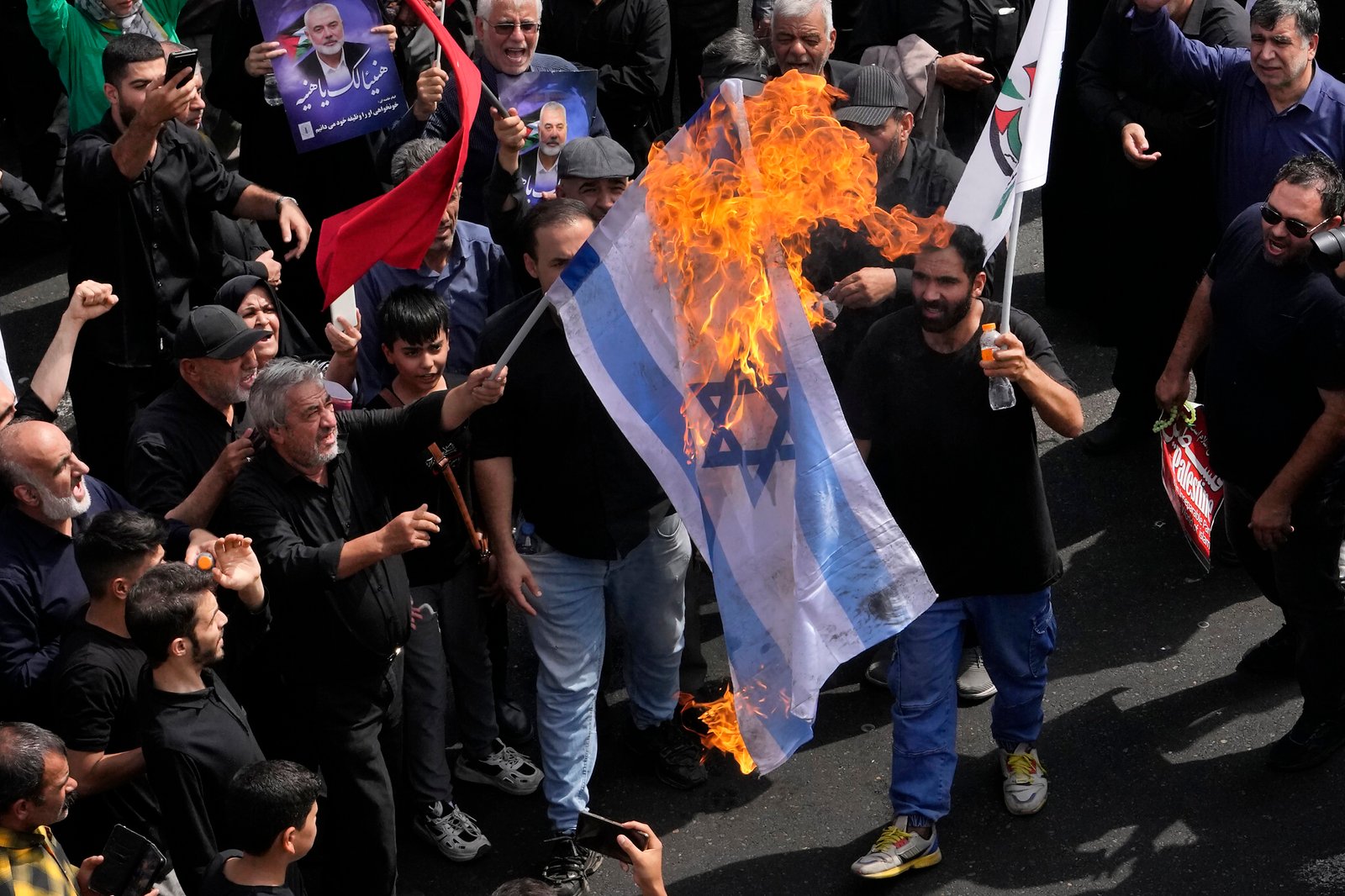
Image Source : timesofisrael.com
Iran Attack Israel Conflict : Timeline of Israel-Iran missile strikes October 2024The conflict between Iran and Israel escalated significantly on October 1, 2024On October 1, 2024, Iran launched a significant ballistic missile strike against Israel, escalating tensions in the region. Iran reportedly fired around 200 missiles, with some targeting areas near military sites like Nevatim Airbase and Tel Nof Airbase. While most missiles were intercepted by Israel's defense systems and allied U.S. forces, a few managed to cause minor structural damage and injuries. Tragically, two people were killed—one Palestinian by shrapnel in the West Bank and one Israeli indirectly impacted by debris. This attack followed Israel’s recent military operations, including strikes against Hezbollah and the assassination of key militant leaders, such as Hezbollah's Hassan Nasrallah and Hamas’s Ismail Haniyeh. Iran framed the missile barrage as a response to these assassinations and other Israeli actions in the region. The conflict has prompted heightened concern about a broader regional war, with the U.S. already bolstering its military presence to assist Israel’s defense. Israel has vowed retaliatory measures, indicating that it will act at a time and place of its choosing. The situation remains fluid, with both nations exchanging threats of further action if the conflict escalates further. The conflict between Iran and Israel escalated significantly on October 1, 2024, when Iran launched a large-scale ballistic missile attack against Israel. This marked a sharp escalation in the long-standing hostilities between the two nations, with Iran claiming the attack was retaliation for Israel’s recent operations, including the assassination of Hezbollah leader Hassan Nasrallah and Hamas leader Ismail Haniyeh. Iran fired around 200 missiles, with a few hitting military and civilian sites, including Nevatim Airbase and the Tel Aviv region, causing damage to infrastructure. However, most missiles were intercepted by Israel’s defense systems, with assistance from U.S. Navy interceptors positioned in the Mediterranean. Casualties were relatively limited—two people were killed (a Palestinian by shrapnel in the West Bank and an Israeli affected indirectly), and a few were injured. The missile barrage came amid heightened regional tensions. Just before the attack, Israel carried out military strikes in Lebanon targeting Hezbollah and launched limited operations against Iranian interests. Israel has vowed to retaliate for the missile attack "at the time and place of its choosing," raising fears of a broader conflict in the Middle East. This flare-up in the Iran-Israel conflict highlights the volatile nature of their regional proxy warfare, which has involved military strikes, targeted assassinations, and proxy battles in Lebanon, Syria, and Gaza. As the U.S. bolsters its military presence in the region to support Israel, the risk of further escalation remains high. The Iran-Israel conflict is deeply rooted in a combination of geopolitical, religious, and ideological factors. Below are the major causes behind the recurring hostilities, including the recent Iranian missile attack on Israel: 1. Geopolitical Rivalry and Regional Dominance
2. Proxy Conflicts and Support for Militants
3. Religious and Ideological Conflict
4. Israeli Preemptive Actions and Iranian Retaliation
5. Impact of U.S. Policies and Sanctions
These intertwined factors create a complex and enduring conflict, with no clear resolution in sight. Both nations are deeply entrenched in their positions, heightening the risk of further military confrontations and regional destabilization. |
|---|
Tags : Timeline of Israel-Iran missile strikes October 2024, Causes of Iran's missile attack on Israel, Regional impact of Israel-Iran tensions , Role of Hezbollah in Israel-Iran escalation , U.S. military assistance to Israel during Iran attack, Israel air defense intercepts Iranian missiles, Hezbollah and Hamas Israel conflict 2024, U.S. response to Iran-Israel conflict , Impact of Iran attack on West Bank , Geopolitical rivalry Iran Israel war, Iran attack Israel October 2024 , Israel-Iran conflict latest updates Iran missile strike on Israel 2024, Israeli retaliation against Iran October 2024, Middle East tensions Iran Israel
Copyright © 2008 - 2024 ( Iran Attack Israel Conflict : Timeline of Israel-Iran missile strikes October 2024 )
Powered By Kuntal.Org. All Rights Reserved...